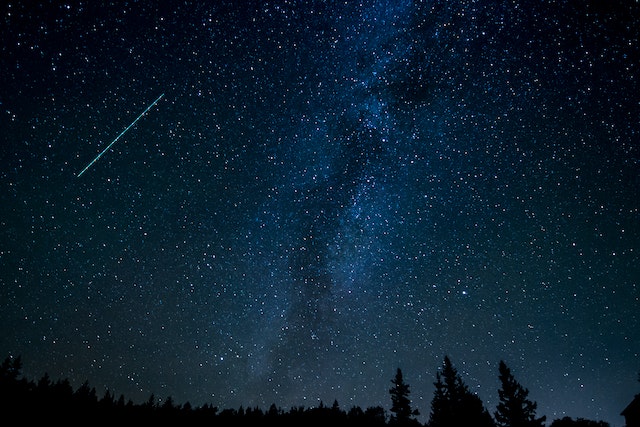The night sky will be a bit romantic this weekend. The meteor shower will reach its peak and there will also be a rare penumbral lunar eclipse.
Best time to see the meteor shower
Meteor shower: May 5th-6th, 3 am-5 am
Penumbral lunar eclipse: May 6th, 3:22 am
The Eta Aquarid meteor shower appears every year when Earth passes through the dust trail of Halley’s Comet.
In fact, the meteor shower has already begun. According to NASA, the meteor shower in 2023 is expected to last from April 15th to May 27th, but it will peak between May 4th and 7th!
The exact number of meteors that can be seen during this peak period is still uncertain, but it is estimated to be between 10 and 30 per hour. At the best viewing time of 3 am-5 am, the estimated number of meteors per hour could reach 50, hence the name meteor shower!
The good news for those in Australia is that this meteor shower will be clearer to see in the southern hemisphere than in the northern hemisphere!
How to watch the meteor shower
To view the Eta Aquarid meteor shower, find a location far away from city lights or streetlights. Prepare a sleeping bag, blanket, or lawn chair. Lie flat on your back, facing east, and enjoy the sky as much as possible. Your eyes will adjust after about 30 minutes in the dark, and you will begin to see meteors.
If you can’t leave the city, you can still see the meteor shower from your balcony, rooftop, or backyard. Be patient, as this meteor shower will last until dawn, giving you plenty of time to observe it.
Penumbral lunar eclipse
On the early morning of May 6th (Saturday), a penumbral lunar eclipse will occur. This is a special astronomical phenomenon that occurs when the moon orbits the Earth and passes through the Earth’s penumbra but not its umbra, making the moon appear slightly dimmer than usual.
The lunar eclipse will last for about four and a half hours, starting at 1:14 am (Australian Eastern Time) and reaching its peak at 3:22 am. It is expected to end at 5:31 am.
It’s worth staying up late this weekend to witness this rare astronomical event of meteor shower and penumbral lunar eclipse!







